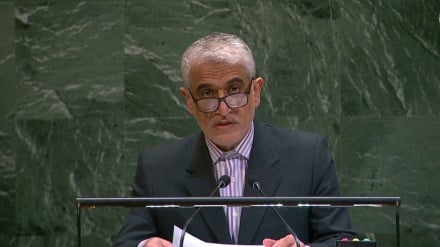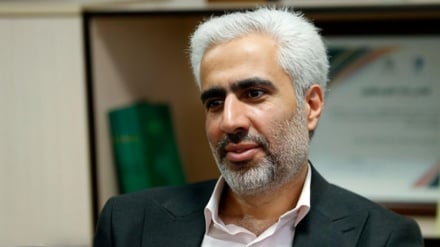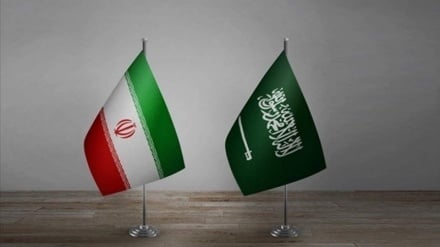Saudi Arabia and Yemenite tragedy
A global scandal is unfolding around Saudi Arabia and the coalition that it created in 2015 to fight against the Ansarullah movement and the revolutionary forces.
On June 3, the United Nations Secretary, General Ban Ki-moon, included the coalition in the black list of countries and groups violating the rights of children in connection with the murders of minors in the fighting in Yemen. According to UN estimates, the coalition is responsible for the death of 510 children, which is 60% of the total number of children that died during the conflict. Another 667 children suffered from the direct actions of the coalition. Peter Salisbury an Associate Fellow, an associate fellow expert in the Middle East and North Africa at Chatham House, has more.
The Saudis responded at once and launched a vast campaign to exclude themselves from this shameful list, having accused the UNO of publishing unreliable information. The UN Secretary-General gave in and within a week, removed the reference to the Kingdom of Saudi Arabia from the document. However, he stated that the decision to remove Saudi Arabia from the black list of countries that are guilty of the violation of the rights of children, was taken under stiff pressure from Riyadh supporters. Ban Ki-moon clarified that Saudi Arabia and its supporters intimidated the UNO by threatening to respond by stopping the financing of a number of programs that directly fall under the global organization.
These statements by the UN General-Secretary only added fuel to the flames and caused a propaganda attack by the Saudi Arabia representative at the UNO, Abdullah Al Muallem, who issued a rebuttal and denied the allegations that his country was imposing some pressure tactics on the international organizations, and called the authors of the report “amateurs who are trying to catch fish in muddy waters.” He was outrages that the authors of the report were associating all the victims of the conflict with Saudi Arabia…
Admittedly, the coalition’s track record of using arms against civilians in Yemen, including children, was with all sorts of accusations against the so-called coalition, headed by Saudis, for a long time. However, it became a massive thing in 2016, which from the most closest allies of Riyadh in the West, the Saudi royal family obviously did not expect.
The UNO was the first to sound the alarm. On January 5, 2016, the UN Office of the High Commissioner for Human Rights (OHCHR) expressed concerns about statements from Yemen on the use of cluster bombs by the coalition armed forces headed by Saudi Arabia. A representative of the UN Office of the High Commissioner for Human Rights, R. Kolvill, stated that “During a visit to the village of El Odeyr in Haradh district, a group of the Un body's employees found remnants of 29 cluster bombs close to some banana fields”. At that time, it was known that the British advisers helped the coalition aircraft to aim at the target, while the USA sold bombs to Saudi Arabians.
Despite the criticism of the UNO officials, the Saudi-led coalition air raids on Yemen territory were continued actively in January-February, affecting the residential area of Sana, the country’s capital.
It was impossible to stop a wave of criticism. Representatives of the major human rights advocacy group, Amnesty International, appealed to the governments of the EU and the USA to stop delivering arms to the Saudi regime that was “committing war crimes in Yemen.” On March 11, news broke out that the British Parliament had initiated an investigation into the delivery of arms to the Kingdom of Saudi Arabia, after which the Parliament of the Netherlands approved a draft law that calls on the government to stop arms exports to Saudi Arabia due to the constant violation of human rights in Yemen.
By the way, that Riyadh has been able to so nakedly use its influence on such an important issue signals that, for the UN and the international community, humanitarian law and the rights of children come second to political and financial expediency. But the long-term effects of the decision, for the UN and Saudi Arabia, will likely come with other, unintended consequences.
Riyadh was listed as having violated the rights of children in armed conflict, joining a 'rogues' gallery' of states and armed groups, for its part in the Yemen war. The kingdom, which is deeply sensitive to criticisms of its rights record at home and abroad, was furious at the report and apparently spent much of the following weekend furiously lobbying the UN to remove its name from the list. According to Foreign Policy's Colum Lynch, Riyadh threatened to pull funds and aid for UN humanitarian work and other projects, and convinced its regional allies to pile further pressure on to the organization. Ban is said to have been contacted by officials from Egypt, Jordan, Kuwait, Qatar, the UAE and Bangladesh as part of a 'full court press' aimed at getting him to revoke the designation.
No mention was made of the US military, whose role in the bombing of a Medecins Sans Frontieres hospital in Afghanistan was referenced in the UN report but attributed to so-called 'international forces'. In effect, if other powerful countries aren't named and shamed for political reasons, the argument seems to be, Saudi Arabia shouldn't be either.
If Saudi Arabia can undermine the credibility of the UN reporting on such a crucial issue, then why should other countries pay attention to the norms they are meant to uphold? By caving in to Saudi pressure, Ban has hurt the UN's ability to speak definitively on the protection of children in conflict, and undermined his own efforts to bring human rights into the mainstream - a core tenet of his early platform as secretary general.
Meanwhile, Saudi Arabia has done little to improve its international standing. Most human rights groups are incandescent with rage over the move, and are likely to redouble already fierce criticism of the Saudis' conduct in Yemen - and of Western indifference to the actions of a major oil producer and weapons market. The suspension of the designation is hardly likely to convince anyone that the contents of the report are wrong; if anything, the opposite is true.
This move puts more pressure on Western governments - the US, UK and France in particular - to justify their close ties with, and defense of the reputation of, the kingdom to voters. That is probably the exact opposite of what the kingdom hoped to achieve. The Saudi King Salman would be well advised to take a more nuanced approach next time around; and Ban to stand up for the values he claims to promote.
EA/SS


